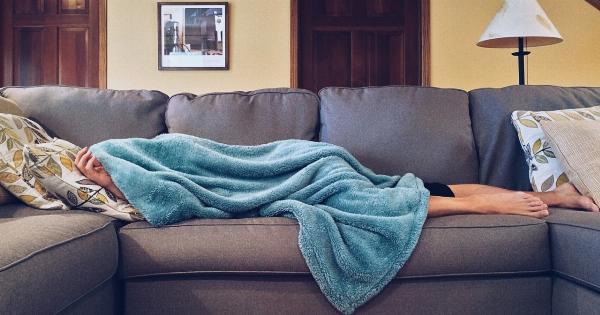Many people believe that work is the main source of stress in their lives, but what if I told you that I feel more stressed at home than at work? It may seem counterintuitive, but for me, home life can often be more anxiety-inducing than any deadline or meeting at the office. Here are some reasons why:.
1. Lack of Boundaries
One of the most significant contributors to my stress at home is the lack of boundaries between work and personal life.
While I have designated work hours when I’m at the office, it can be difficult to switch off completely when I’m back at home, especially with the rise of remote work in recent times. With emails and messages piling up on my phone throughout the day, it’s hard to disengage and enjoy my home life without feeling like I’m neglecting something important.
2. Clutter and Chaos
When I come home, I want to feel relaxed and at ease, but a cluttered or chaotic home can make that impossible.
Being surrounded by mess and disorganization can be a constant source of stress and anxiety, as it can make even simple tasks, like finding a pair of shoes or cooking a meal, feel overwhelming. Maintaining a tidy home takes time and effort, but it’s an investment in our mental health that’s well worth making.
3. Relationship Strain
Relationships are a significant part of our lives, but they can also be a major source of stress if they’re not healthy.
Whether it’s with a partner, family member, or roommate, being in close proximity to someone for extended periods can lead to conflicts and tensions. The emotional labor of navigating these relationships can be exhausting, especially if there are unresolved issues or underlying resentment.
4. Personal Responsibilities
At work, I have a clear set of responsibilities and tasks that I need to complete. At home, the list of things that need to be done can feel never-ending, from paying bills to doing laundry to taking care of pets.
The pressure to stay on top of all these personal responsibilities can be overwhelming, especially if there’s no one else to share the burden with.
5. Limited Social Connection
For many of us, work is a chance to socialize and connect with colleagues outside of our immediate circle of family and friends. However, with remote work becoming more common, that opportunity for socialization can be limited.
At home, we may only interact with the same small group of people day in and day out. While our family and friends are undoubtedly important, it’s essential to have a broader support network of people who can offer us different perspectives and experiences.
6. Uncertainty and Change
The current global climate has been marked by unprecedented levels of uncertainty and change. Many of the things we took for granted, like job security and our health, have been called into question.
At home, we may face uncertainty about how to balance work and personal life in this new normal, or how to keep ourselves and our loved ones safe in the midst of a pandemic. This constant state of upheaval can be incredibly taxing on our mental health.
7. Lack of Self-Care
Finally, perhaps the most significant factor contributing to my stress at home is my own neglect of self-care.
When I’m at work, I’m often forced to prioritize my well-being and take breaks when I need them, whether it’s a lunch break or going for a walk. At home, there’s no one to hold me accountable for taking care of myself. It’s up to me to schedule time for exercise, meditation, or other activities that help me recharge and reduce stress.
Conclusion
While work can certainly be stressful, home life can be just as anxiety-inducing, if not more so.
The lack of boundaries, clutter and chaos, relationship strain, personal responsibilities, limited social connection, uncertainty and change, and neglect of self-care can all contribute to our stress levels. However, by acknowledging these factors and taking steps to address them, we can improve our well-being and find greater balance in both our work and personal lives.































